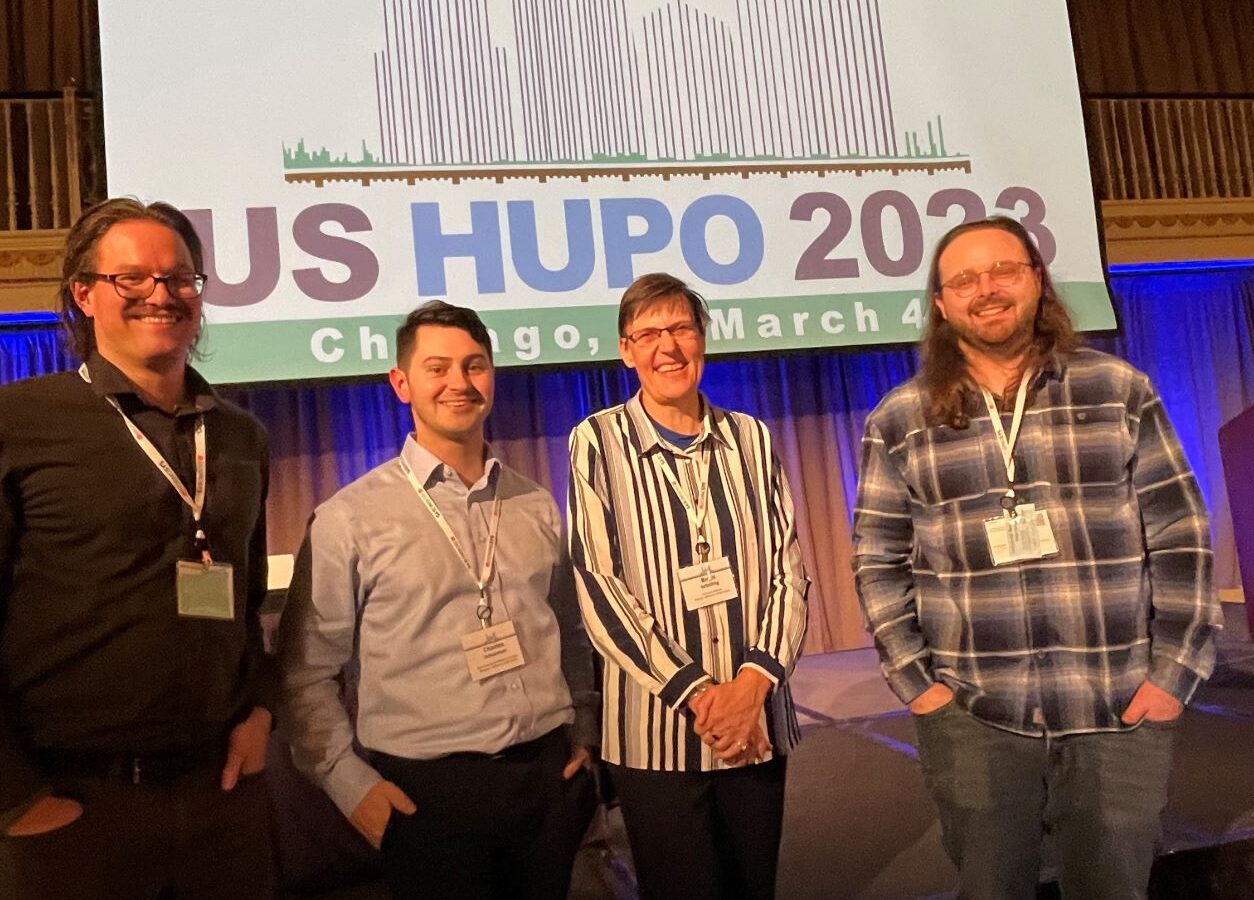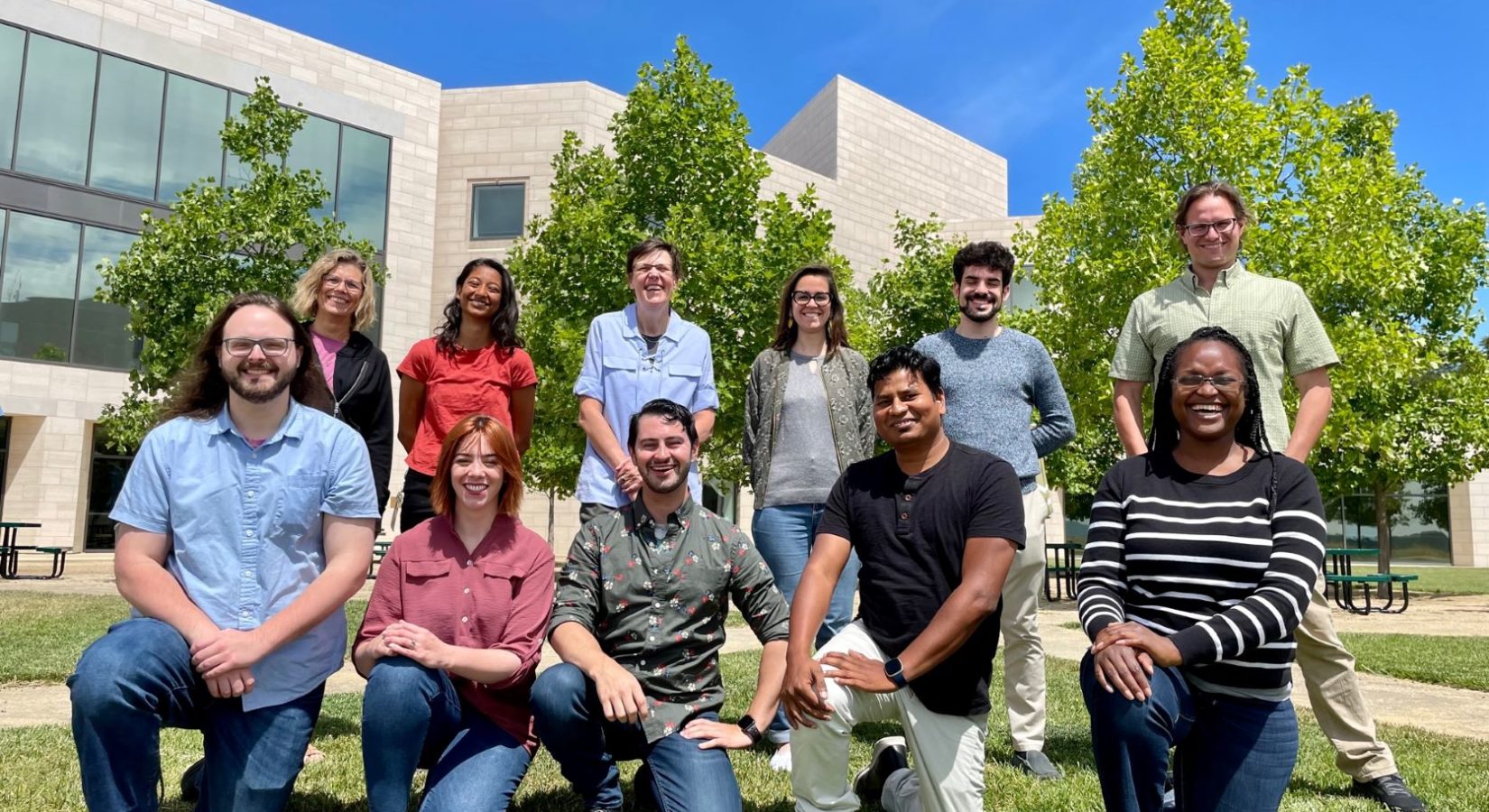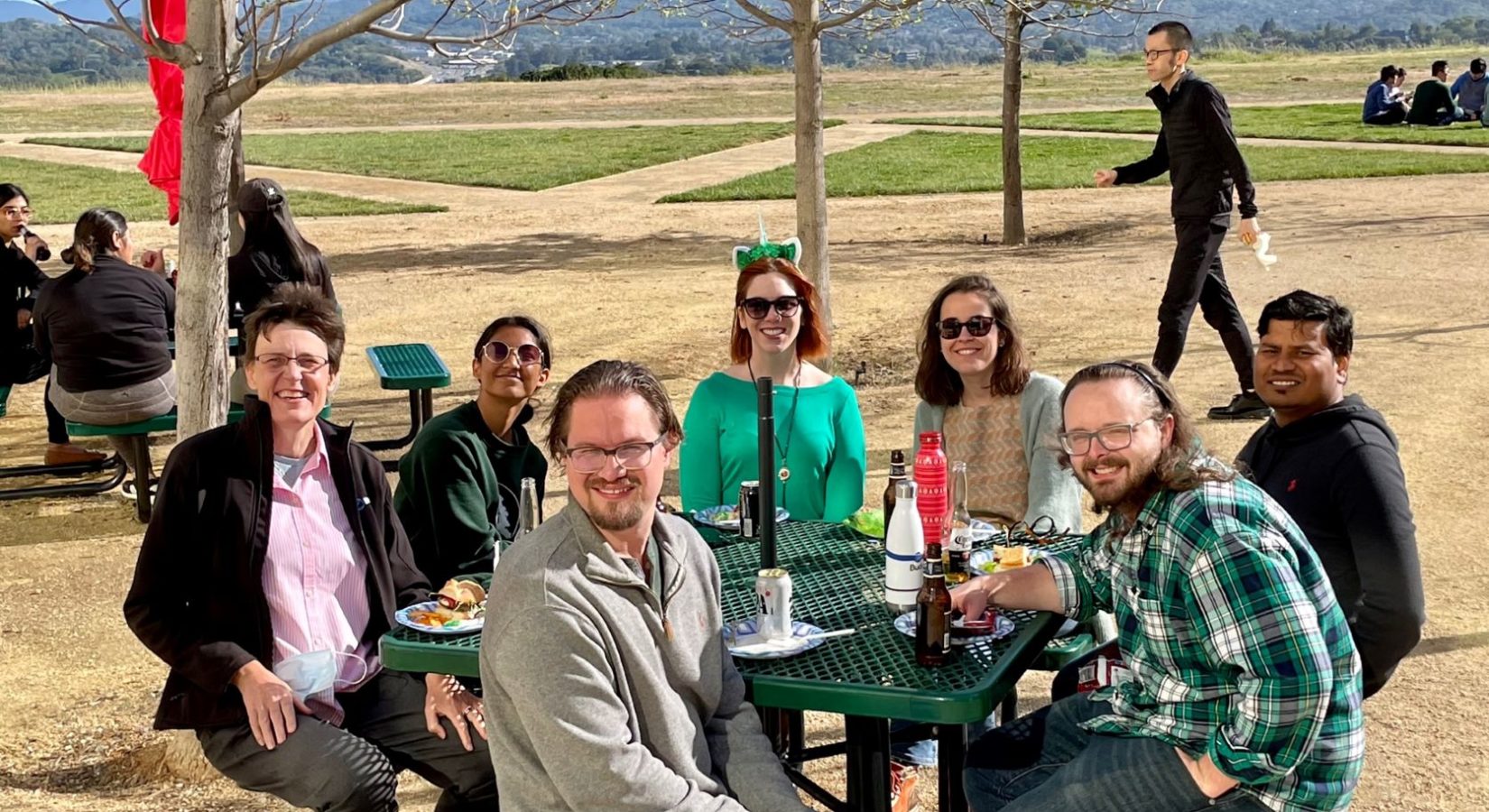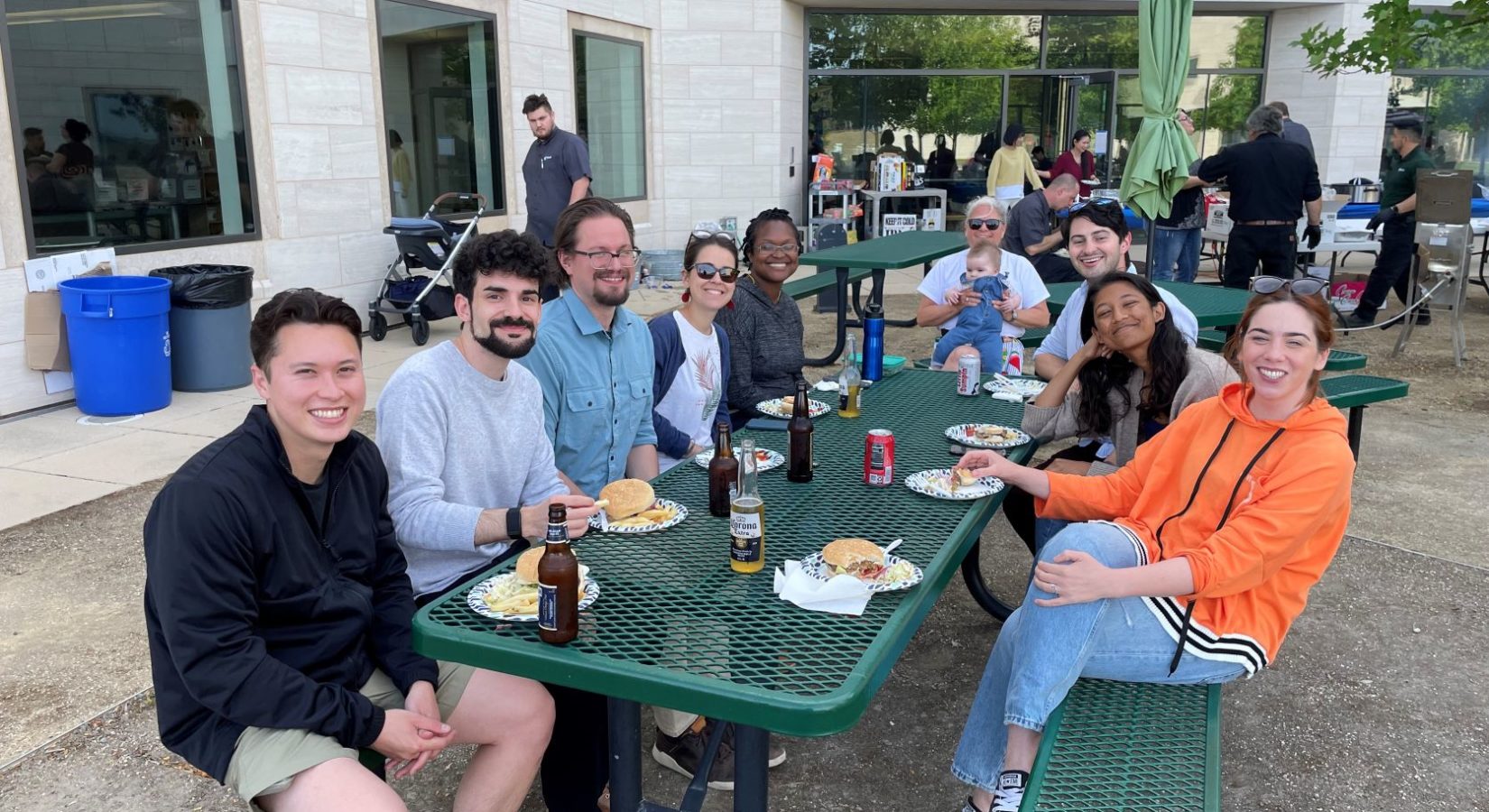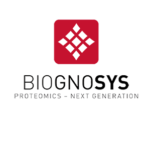SCHILLING LAB
Lab focus
The Schilling lab uses advanced mass spectrometric technology to understand molecular mechanisms that underlie aging. Analyzing samples on the molecular level provides insights into protein pathways and mechanisms of disease and aging. We collaborate with all investigators at the Buck as well as investigators from outside institutions. The Schilling lab develops and implements advanced innovative protein analytical technologies (including quantitative proteomics, posttranslational modifications, protein dynamics and biomarker discovery) to advance basic biology and biomedical research related to aging research.
The Schilling lab engages in many collaborative projects and is engaged in worldwide mass spectrometric studies, as well as software development. Many different workflows are supported at our facility or can be developed together to support biological projects with innovative technologies to gain insights into molecular details in a system-wide approach. At the same time, worldwide collaborations with other proteomics and mass spectrometry laboratories keep our cutting edge workflows and our approach at the forefront of analytical technology.
Learn more about the Proteomics and Mass Spectrometry Center.
Why it matters
Understanding what happens during aging and the development of age-related disease, and what is different in a diseased organism compared with a healthy organism, are key to developing treatments, drugs and interventions. We have focused on developing assays to discover biomarkers of aging and disease from easily accessible biofluids, such as plasma or blood from human patients. Connecting these findings with fundamental mechanisms of aging in model systems available at the Buck will drive our research forward in significant ways.
Combining specialized Proteomics Technology with Aging Biology will allow us to gain deeper insights into underlying mechanisms and pathways of Aging.
Birgit Schilling, PhD
CENTER DETAILS
Birgit Schilling is the Director of the Mass Spectrometry Core and a Professor at The Buck Institute for Research on Aging. Dr. Schilling studied Chemistry at the University of Hamburg and received her Doctorate (PhD) from the University of Clausthal, Germany. Dr. Schilling obtained additional research training as a postdoctoral fellow at UCSF, and joined the Buck Institute in 2000. She is also Adjunct Professor at University of Southern California and is teaching at the Buck Institute as part of the joined Buck Institute/USC PhD program.
Dr. Schilling and the Mass Spectrometry Core provide expertise in mass spectrometry to efficiently analyze biological samples, for example to determine changes in protein expression or protein modifications as a result of a disease or other biological conditions. Collaborative research projects investigated at the Mass Spectrometry Core comprise projects related to neurodegenerative diseases, aging, cancer, muscle atrophy, protein posttranslational modifications, mitochondrial damage, biomarker research, and many other scientific areas. Specific areas of interest are a sarcopenia project deciphering underlying causes and biological pathways of muscle atrophy, as well as the role of sirtuins on posttranslational modifications of proteins.
Dr. Schilling is also interested in developing new Proteomics workflows and new technological approaches that will subsequently benefit biological projects. Dr. Schilling is President of the US HUPO, the Human Proteome Organization, which is dedicated to advance mass spectrometric technologies to study the human proteome (‘from genes to function’). Dr. Schilling has participated in large, international, mass spectrometric studies.
Dr. Schilling has experience working with biotechnology companies. Dr. Schilling collaborated with MitoSciences in the development of new antibodies. She investigated protein acetylation in collaboration with Sirtris Pharmaceuticals, and she has worked with BioMarin providing mass spectrometric expertise and sample analysis. Recently, Dr. Schilling started collaborations with Unity Biotechnology focusing on the role of cellular senescence in an ongoing research project.
-
 Ben Ambrose Research Associate
Ben Ambrose Research AssociateBen received his B.S. in biophysics at Arizona State University in 2023. While at ASU, he developed and tested a flow-based device for the non-destructive collection of volatile metabolites. In 2022, he was awarded the Fulbright Canada Killam Fellowship and studied at the University of Alberta during the fall semester. Through his work, Ben aims to understand better the underlying mechanisms of age-related diseases. Outside of the lab, he enjoys photography, disc golf, and movies.
BAmbrose@buckinstitute.org
-
 Joanna Bons, PhD Research Scientist
Joanna Bons, PhD Research ScientistJoanna received her diploma of Engineer in Biotechnology from the School of Biotechnology (ESBS) in Strasbourg (France) and her PhD in Analytical Chemistry from the University of Strasbourg. She did her PhD under the supervision of Dr. Christine Carapito at the Laboratory of BioOrganic Mass Spectrometry (LSMBO, Strasbourg) and her work aimed at improving proteome quantification and characterization using quantitative mass spectrometry. Joanna joined the Schilling Lab in September 2020 where she focused on studying protein posttranslational modifications.
JBons@buckinstitute.org
-
 Jordan Burton, PhD Postdoctoral Researcher
Jordan Burton, PhD Postdoctoral ResearcherJordan is originally from the Upper Peninsula of Michigan. He received a B.S. in chemistry at Lake Superior State University in 2013. His PhD work at Wayne State University in Detroit, under the supervision of Dr. Paul M. Stemmer, focused on the efficient and reproducible enrichment of plasma extracellular vesicles for the identification of novel biomarkers. Jordan joined the Schilling Lab in February 2022 to identify candidate biomarkers of aging and senescence in neurodegenerative diseases. His hobbies include snowboarding, hiking, cycling, traveling, and reading.
JBurton@buckinstitute.org
-
 William Chandler Dominican University Graduate Student
William Chandler Dominican University Graduate StudentWilliam received his B.S. in biology at Sonoma State University in 2022. During his undergraduate, he contributed to research that involved Azolla and the effects on Zinc Chloride on abscission in Azolla. He joined the Schilling lab in August 2023 as a Masters student, to begin his journey in aging research.
WChandler@buckinstitute.org
-
 Christina King, PhD Associate Director, Proteomics Core
Christina King, PhD Associate Director, Proteomics CoreHailing from Houston, TX, Christina joined the Mass Spectrometry Core and Schilling Lab in December 2020. She graduated from the University of Houston in May 2012 with a Bachelor's degree in Chemistry and a minor in Biology. Under the direction of Dr. Renã Robinson (RASR), she learned proteomics techniques to study aging, infection, and Alzheimer's disease, thus earning a Ph.D. in Analytical Chemistry from the University of Pittsburgh in December 2018. Continuing in the RASR Lab as a Vanderbilt Interdisciplinary Training Program in Alzheimer's Disease post-doctoral fellow, she helped develop a robust automated plasma proteomics protocol to study racial disparities in hypertension. As a member of the Core and Schilling Lab, Christina plans to apply her experience with proteomics-based studies and high resolution accurate mass (HRAM) mass spectrometry to assist with ongoing and future projects. In her spare time, she likes to bake cookies and challah, listen to podcasts, kayak, volunteer, and travel.
CKing@buckinstitute.org
-
 Qi "Kathy" Liu Postbaccalaureate Researcher
Qi "Kathy" Liu Postbaccalaureate ResearcherQi “Kathy” Liu received her B.A. in molecular & cell biology and mathematics at Vanderbilt University in 2023. During her undergraduate, she contributed to research on genetic and cellular aspects of inborn errors of immunity. She joined the Schilling lab in July 2023 where she continues her scientific journey on aging research and proteomics.
qliu1@buckinstitute.org
-
 Jacob Rose Research Associate
Jacob Rose Research AssociateJacob is a recent Master's graduate from Dominican University of California, but originally from Little Rock, AR. He has been at the Buck for 2 years, first completing his Master's with Dr. Chris Benz and continuing on as a Research Associate in Dr. Birgit Schilling's lab working with senescent cells and the SASP Atlas.
JRose@buckinstitute.org
-
 Charles (Charlie) A. Schurman, PhD Postdoctoral Researcher
Charles (Charlie) A. Schurman, PhD Postdoctoral ResearcherCharlie completed his B.S. in biomedical engineering at Northwestern University in 2016 with an emphasis in biomaterials and material sciences where his undergraduate research involved the synthesis and characterization of noble metal nanoparticles for photothermal and anticancer therapies. He completed his Ph.D. in 2022 through the UCSF-UC Berkeley Joint PhD Program in Bioengineering under the direction of Dr. Tamara Alliston in the Department of Orthopaedic Surgery at UCSF where he focused on the role of osteocytic TGF-beta signaling in regulating aging bone material properties. Charlie joined the Schilling Laboratory in April of 2022 to identify novel markers of skeletal cellular senescence and associated tissue damage in human skeletal disease and aging to better understand and treat age-related musculoskeletal diseases such as osteoporosis and osteoarthritis.
CSchurman@buckinstitute.org
-
 Samah Shah Research Associate
Samah Shah Research AssociateSamah Shah graduated from the University of British Columbia with a BS in Microbiology. While there, she contributed to research on a bifunctional enzyme of F. nucleatum, and worked as a teaching assistant for a second year genetics module. She is interested in the medical and therapeutic applications of microbiology and immunology.
SShah@buckinstitute.org
-
 Mark Watson, PhD Scientist
Mark Watson, PhD ScientistDr. Watson received his bachelor’s degree in biomedical science and his PhD in infection and immunity from the University of Birmingham in the United Kingdom. His research focuses on the implications of mitochondrial ROS in initiating and exacerbating diseases as well as the involvement of intestinal health in aging. Mark serves as a Buck Ambassador, providing scientific outreach to the community.
mwatson@buckinstitute.org
-
N. B.Natan Basisty, PhD Assistant Professor
Translational Geroproteomics Unit at National Institute of Aging (NIA)
-
J. M.Jesse Meyer, PhD Assistant Professor
Postdoctoral Program, 2015-2018
Assistant Professor, Medical College of Wisconsin, Milwaukee -
R. Q.Ryan Quinn
Touro Univeristy College of Osteopathic Medicine
-
K. P.Kevin Perrott
SENS Research Foundation
-
D. P.Deborah Post, PhD
Amyris Inc
-
L. W.Lei Wei, B.S. PhD Graduate Student
UC Davis - Microbiology PhD program
LAB GALLERY
Selected Publications
- A proteomic atlas of senescence-associated secretomes for aging biomarker development.
Basisty N, Kale A, Jeon OH, Kuehnemann C, Payne T, Rao C, Holtz A, Shah S, Sharma V, Ferrucci L, Campisi J, Schilling B. PLoS Biol. 2020 Jan 16;18(1):e3000599. doi: 10.1371/journal.pbio.3000599. PMCID: PMC6964821 - Wang G, Meyer JG, Cai W, Softic S, Li ME, Verdin E, Newgard C, Schilling B, Kahn CR. Regulation of UCP1 and Mitochondrial Metabolism in Brown Adipose Tissue by Reversible Succinylation. Molecular Cell. 2019;74(4):844-857.e7. PMCID: PMC6525068.
- Collins BC, Hunter CL, Liu Y, Schilling B, Rosenberger G, Bader SL, Chan DW, Gibson BW, Gingras AC, Held JM, Hirayama-Kurogi M, Hou G, Krisp C, Larsen B, Lin L, Liu S, Molloy MP, Moritz RL, Ohtsuki S, Schlapbach R, Selevsek N, Thomas SN, Tzeng SC, Zhang H, Aebersold R. Multi-laboratory assessment of reproducibility, qualitative and quantitative performance of SWATH-mass spectrometry. Nature Communications. 2017; 8:291. PMCID: PMC5566333.
- Bullard SA, Seo S, Schilling B, Dyle MC, Dierdorff JM, Ebert SM, DeLau AD, Gibson BW, Adams CM. Gadd45a Protein Promotes Skeletal Muscle Atrophy by Forming a Complex with the Protein Kinase MEKK4. J Biol Chem. 2016; 291(34):17496–17509. PMCID: PMC5016147.
- Tracy TE, Sohn PD, Minami SS, Wang C, Min SW, Li Y, Zhou Y, Le D, Lo I, Ponnusamy R, Cong X, Schilling B, Ellerby L, Huganir RL, Gan L. Acetylated Tau Obstructs KIBRA-Mediated Signaling in Synaptic Plasticity and Promotes Tauopathy-Related Memory Loss. Neuron. 2016;90(2): 245-260. PMCID: PMC4859346.
IN THE NEWS

The team of over 60 scientists investigating the age-old mystery of inflammation and cancer







